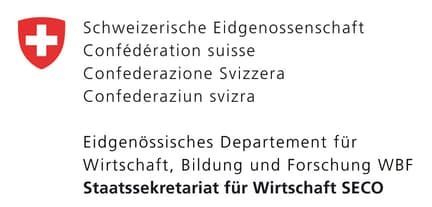Better Work Viet Nam
In operation since July 2009, Better Work Viet Nam aims to improve the working conditions and competitiveness of Viet Nam's garment and footwear industry.
In operation since July 2009, Better Work Viet Nam aims to improve the working conditions and competitiveness of Viet Nam’s garment and footwear industry. Around 400 factories across the country actively participate in the programme with nearly 700,000 employees, of whom 78 per cent are women. The programme promotes labour standards and competitiveness at the workplace through training services and seminars as well as advisory and compliance assessments.
At the national level, Better Work Viet Nam collaborates with central tripartite partners, including the Ministry of Labour, the Viet Nam Chamber of Commerce and Industry and the Viet Nam General Confederation of Labour. Together, Better Work Viet Nam and the tripartite partners work to promote labour law reforms that align Viet Nam with international labour standards and ILO Conventions. Such partnership is necessary for Viet Nam to fully participate in global supply chains in line with the terms of its existing free trade agreements. Better Work Viet Nam’s role in connecting global brands and retailers with social partners. This integrated approach ensures continuous improvement of working conditions.
Through its convening power, Better Work Viet Nam strengthens public and private partnerships. The Building Bridges Initiative serves as an effective national platform for public and private sector actors to come together to learn and discuss various topics of common interests. This platform strengthens partners’ engagement with each other with the aim of supporting sustainable compliance with the national labour law and international labour standards and promoting joint problem solving and collective action. By transferring knowledge among, and building capacity of, tripartite partners, this partnership with national stakeholders and other ILO projects has enabled the programme to create spillover effects to other sectors of the economy, such as electronics.
Building on the successful collaboration with the Ministry of Industry and Trade (MoIT) on the development of Viet Nam’s Garment, Textile and Footwear Development Strategy, Better Work Viet Nam is now coordinating with MoIT, global brands and manufacturing groups to support the development of accompanying action plans. This engagement creates new opportunities for Better Work Viet Nam to work with Viet Nam social partners and expand its support in the garment sector, going beyond compliance issues to address emerging themes such as environmental sustainability, upskilling, inclusion, productivity, digitalization and upgrading the value-add of the Vietnamese garment sector in the global supply chain, which are critical to the competitive and sustainable growth of the sector.
Our impact
1Workers experience greater contract stability along with increased pay.
Better Work is preventing the use of insecure or unprotected contracts that leave the worker in a precarious employment situation. The longer a factory participates in the programme, the less frequent their abuse of probationary contracts. Workers’ reported take-home pay increases in constant terms. Better Work is driving this effect through ensuring compliance with paying workers as promised in their contracts.
2Better working conditions, and participation in Better Work, are linked to higher profitability.
Better Work is preventing the use of insecure or unprotected contracts that leave the worker in a precarious employment situation. The longer a factory participates in the programme, the less frequent their abuse of probationary contracts. Workers’ reported take-home pay increases in constant terms. Better Work is driving this effect through ensuring compliance with paying workers as promised in their contracts.
3The quality of jobs in the garment sector influences the educational opportunities of workers’ children.
Better Work is preventing the use of insecure or unprotected contracts that leave the worker in a precarious employment situation. The longer a factory participates in the programme, the less frequent their abuse of probationary contracts. Workers’ reported take-home pay increases in constant terms. Better Work is driving this effect through ensuring compliance with paying workers as promised in their contracts.


